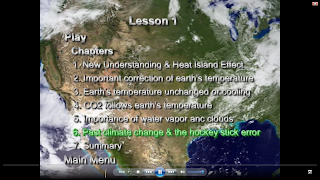Now we're going on a bit of a caveat, since it seems to be ingrained in the idea that it is evidence.
Someone said they doubt a portion of some theory, so the entirety of said stance is incorrect.
Let's think about this for a moment, because it really hits home at some very important points in the nature of how science works. This also illustrates a couple of common fallacies.Since this is a series on evidence, we'll start there. Let's go again to the first part of that sentence. Doubt is a natural, skeptical process. It's how science works. But doubt isn't simply someone saying they think something could be wrong. Simply disagreeing to disagree in spite of evidence is cynicism, not skepticism. Furthermore, saying that someone happens to have doubts about something in a theory/hypothesis doesn't make the theory/hypothesis wrong. It merely means that, perhaps, a small portion is somehow incorrect. This has happened a lot of times.
Let's take a simple example, Newton's theory of gravity (that's a scientific theory, so please take a moment and clarify that again). Newton's theory works fine for most of our interactions, and it works to a degree of clarity that's pretty astounding, given the tools and abilities of people several centuries ago. Newtonian physics didn't deal with the speed at which gravitational waves propagate, for example (waves are interesting things when you leave the macro world for the micro/quantum, but I digress - that's not the scope of this post, and I'm not the best person to discuss that anyway). Some people had doubts as to whether they really moved at the speed of light.
Now, to say the doubts about whether they move at the speed of light, whether they propagate instantaneously, or whether they're slower (like ocean waves, sound waves, radio waves, etc) doesn't change the fact that the rest of the theory works well. It also doesn't invalidate Einsteinian Relativity for Einstein to question this very thing himself. Newtonian gravity works excellently for things at short distances (say, within a few hundred million miles, like our distance from the sun, or the distance of a basketball hoop from the center of the earth, say), but starts to fall apart at larger distances. Even Newton was (probably) well aware of this.
With this foundation, let's look a bit closer at the second part of the argument above. Just because we didn't know how fast gravity waves moved, doesn't mean there aren't gravity waves, and it doesn't mean they don't move. It's exactly the same conundrum when people say that there are things we don't understand about evolution, so evolution must be incorrect. It's simply not true, and it's an appeal to authority fallacy.
Let's pop this on it's back and reverse it. There's two clear-cut examples, one biblical, and one more recent. In the bible, Jesus questions whether or not his father is really sure about what to do. Jesus questioned his own existence, essentially. This does not, by itself, mean that the bible is wrong. Jesus had doubts about his father's plan, so maybe his father's whole plan was wrong. Again, this is an argument from appealing to authority, and it's a fallacy. To put that in modern terms, tons of biblical scholars are even pretty sure Jesus didn't actually exist (they doubt the bible), and therefore since they're the learned ones of the bible, we should just accept that their whole hypothesis is wrong too, because one part of it is in doubt by someone who should know these things. That's a bad fallacy, but no one seems to like bringing it up.
Essentially, this is exactly what the popes do ALL THE TIME. They change stances, doubt the biblical things that shouldn't be doubted if it's the literal word of god. But, as simple as that would make my job, it doesn't invalidate the bible just because people don't know it all to be true. The evidence, you see, is what bears negatively on the bible. There's literally no evidence for, and plenty of that direct and indirect evidence against, the historical account of the bible. If that changes, and we find fossils in the wrong strata, or perhaps we find a particular element that measures a different half-life than all the same samples we've ever found before, then the science would change. Those fossils in the wrong place would be pretty strong evidence of someone moving them. In a million years, perhaps, another species might see tons of localized fossils that don't belong in our strata that we've moved. And even if all this happens, it still isn't evidence (direct, indirect, induced or otherwise) for a creator, especially not a specific one.
Until such time as we have such evidence, and can test it, and make predictions with it, the doubt Dawkins has about tiny parts of the theory of Evolution do not make the theory invalid. It simply means someone doubts part of it (and probably with at least a bit of evidence), nothing more. Evidence is required for the next step, which is changing the theory. If we found solid evidence of a creator, then our theory would have to include it, regardless of who doubts it.
The key takeaway here is that doubt by one party is not evidence for another. Cherry-picking that doubt as evidence is actually quite another fallacy, and is intellectually disingenuous at best. It may be a formal unwarranted assumption, but I think it's more correctly a fallacy of absence of evidence. It is most definitely, however, a confirmation bias. Just because someone doubts a portion of something doesn't mean you can then say that's justifiably a way to show it incorrect in absence of evidence that you don't have. You need evidence to demonstrate your point just as much as the other needs evidence to have doubt in his. This seems convoluted, but that's what happens with fallacious thinking.




